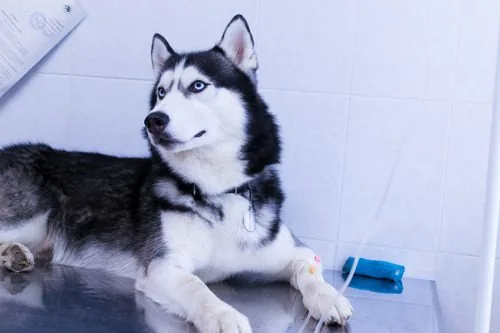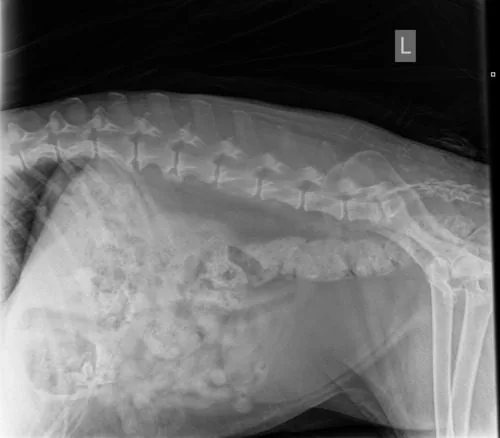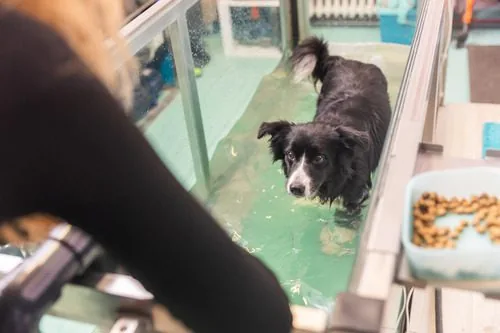Can Dogs Get Vitamin C Infusions?
When it comes to supporting your dog’s health, you might be familiar with the importance of vitamins in their diet. But have you ever wondered if vitamin C, commonly known for boosting human immunity, can also benefit dogs? Even more intriguing, can dogs get vitamin C infusions? This question has gained attention as pet owners seek ways to enhance their dogs’ wellness. Below, we’ll discuss how vitamin C works in dogs and the potential role of infusions might provide valuable insights into optimizing your pet’s care.

How Does Vitamin C Impact Dogs?
Vitamin C, or ascorbic acid, plays a significant role in maintaining the immune system, fighting oxidative stress, and supporting overall health. However, unlike humans, dogs can synthesize vitamin C in their liver. This ability often leads to the assumption that dogs don’t need additional vitamin C. But is that entirely true?
The Role of Vitamin C in Canine Health
While dogs do produce their own vitamin C, certain conditions and stressors might deplete their natural reserves. During periods of illness, injury, or stress, a dog’s body might require more vitamin C than it can produce. In these cases, some veterinarians believe that supplementing with vitamin C can be beneficial. This is where the idea of vitamin C infusions comes into play.
What Are Vitamin C Infusions?
Vitamin C infusions involve delivering a high dose of vitamin C directly into the bloodstream via an intravenous (IV) drip. This method bypasses the digestive system, allowing for a more concentrated and immediate effect. In humans, vitamin C infusions are used for various purposes, from boosting the immune system to supporting cancer treatment. But what about dogs?
Potential Benefits for Dogs
Although research on vitamin C infusions in dogs is limited, some studies suggest potential benefits, especially in cases of severe illness or chronic conditions. For example, vitamin C’s antioxidant properties may help reduce inflammation and oxidative stress in dogs with cancer or autoimmune diseases. Additionally, during recovery from surgery or injury, vitamin C might aid in faster healing by supporting collagen production.
Can Dogs Get Vitamin C Infusions?
The short answer is yes, dogs can receive vitamin C infusions, but it’s not a routine procedure. This treatment is typically reserved for specific cases where a veterinarian deems it necessary. For instance, in dogs undergoing cancer treatment, vitamin C infusions may be used as an adjunct therapy to help manage oxidative stress and support the immune system.
When Might a Veterinarian Recommend Vitamin C Infusions?
Veterinarians might consider vitamin C infusions for dogs with certain conditions, such as cancer, chronic infections, or severe inflammation. These infusions could also be beneficial for dogs recovering from surgery or dealing with significant trauma. However, vitamin C infusions should only be administered under veterinary supervision and as part of a comprehensive treatment plan.
Risks and Considerations
While vitamin C infusions might offer potential benefits, they are not without risks. Over-supplementation of vitamin C can lead to complications, such as kidney stones or gastrointestinal upset. Additionally, the infusion process itself requires careful administration to avoid complications like phlebitis (inflammation of the vein) or infection at the infusion site.
The Importance of Veterinary Supervision
Given the potential risks, vitamin C infusions should never be administered without veterinary oversight. Your veterinarian will assess your dog’s overall health, the specific condition being treated, and whether an infusion is the appropriate course of action. They will also monitor your dog throughout the process to ensure the treatment is safe and effective.
Deciding What’s Best for Your Dog
Ultimately, whether or not to pursue vitamin C infusions for your dog depends on your pet’s specific needs and health status. While vitamin C can offer benefits in certain situations, it’s not a one-size-fits-all solution. Working closely with your veterinarian will help you determine the best course of action to support your dog’s health. If you have questions about your dog’s health or are considering vitamin C infusions, call Veterinary Healthcare Associates at (863) 324-3340 to schedule a consultation.
Recent Posts
When is Dog Diarrhea an Emergency?
When is Dog Diarrhea an Emergency? Dog owners know all too well that occasional digestive upset isn’t…
Is Cat Constipation an Emergency?
Is Cat Constipation an Emergency? Cats are often private about their habits, especially when it comes to…
Feline Emergencies: Warning Signs Your Cat is Crying for Help
Feline Emergencies: Warning Signs Your Cat is Crying for Help Cats have a reputation for being independent,…
Spondylosis in Dogs: Symptoms, Treatment, & More
Spondylosis in Dogs: Symptoms, Treatment, & More If your dog is slowing down or showing signs of…
Dog Wobbler Syndrome: Symptoms, Diagnosis, & Treatment
Dog Wobbler Syndrome: Symptoms, Diagnosis, & Treatment Wobbly walking, a stiff neck, or an unsteady gait in…
About Veterinary Healthcare Associates
Veterinary Healthcare Associates in Winter Haven, FL, was established over 30 years ago as Maxwell Animal Clinic by Dr. John Maxwell. Maxwell Animal Clinic was a one-doctor general practice offering preventive care, dentistry, and standard surgical services to the community. As the years passed, Maxwell Animal Clinic evolved into a thriving 10-doctor general, specialty referral, and emergency veterinary practice.








